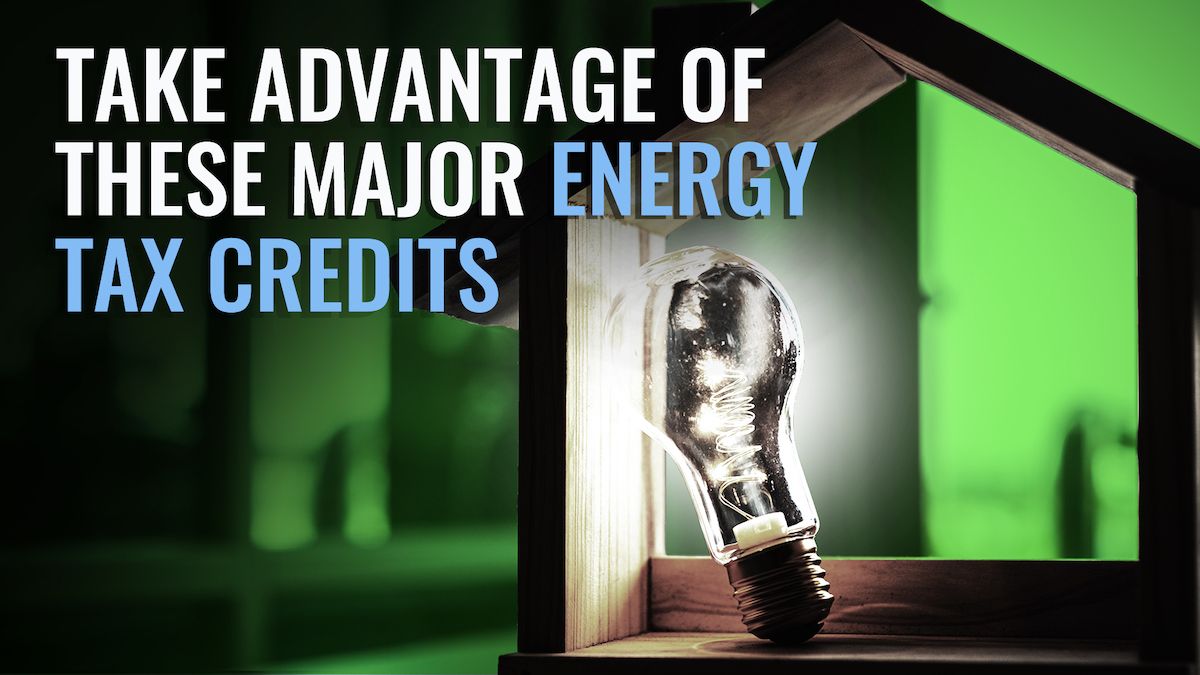Video: Take Advantage of These Major Energy Tax Credits
Investing in alternative energy can provide significant tax breaks. Lisa Greene-Lewis, CPA and TurboTax tax expert, explains what it means for your taxes.
The One Big Beautiful Bill that passed includes permanently extending tax cuts from the Tax Cuts and Jobs Act, including increasing the cap on the amount of state and local or sales tax and property tax (SALT) that you can deduct, makes cuts to energy credits passed under the Inflation Reduction Act, makes changes to taxes on tips and overtime for certain workers, reforms Medicaid, increases the Debt ceiling, and reforms Pell Grants and student loans. Updates to this article are in process. Check our One Big Beautiful Bill article for more information.
Video Transcript:
[00:00:00.94] [MUSIC PLAYING]
[00:00:04.72] TRACY BYRNES: So a lot of talk about energy and sustainability these days. And thankfully, we're going to start getting some benefit from it all. Lisa Greene Lewis, TurboTax expert and CPA, is here with us to help us right now with all this. OK, so Lisa, they passed this big inflation Reduction Act in 2022. Let's start with what is it, and what does it do?
[00:00:25.40] LISA GREENE-LEWIS: Well, it includes new tax provisions and extensions and expansions related to energy efficiency. And there are several. There were some related to electric vehicles. That's the Clean Vehicle Act, residential energy credits, as well as non-business energy efficiency credit.
[00:00:47.99] TRACY BYRNES: So let's start with the first then. The clean vehicle credit-- who gets it, and how much is it?
[00:00:53.12] LISA GREENE-LEWIS: So under the Inflation Reduction Act, the Clean Vehicle Credit, it is still up to $7,500, like the current clean vehicle credit, but they also added a provision for used electric vehicles up to 4,000 or 30% of the sales price. Now, that will not take effect until tax year 2023, the taxes you file in 2024. The only part of the clean vehicle credit that will take effect for tax year 2022 is for new vehicles, and they have to have final assembly in the United States if they were purchased after August 16 of 2022.
[00:01:42.53] TRACY BYRNES: Right, and so make sure you have your documentation for that. So you also mentioned the residential clean energy tax credit. What is that for?
[00:01:50.42] LISA GREENE-LEWIS: So that is for solar, and that will help your tax year 2022 taxes. So if you put solar in your home, it was going to be 26% of the cost of the solar. But under the Inflation Reduction Act, that increased to 30% of your cost. So that will help your taxes in tax year 2022, though.
[00:02:17.38] TRACY BYRNES: Yeah, very much so. And then the energy efficient home improvement credit-- what is that for?
[00:02:25.53] LISA GREENE-LEWIS: So that is for any energy efficient windows, doors, insulation that you put in your home. The new provisions won't take effect until tax year 2023, the taxes you file in 2024. So for tax year 2022, it is still up to $500. Under the new provisions for tax year 2023, it's going to be up to $1,200.
[00:02:52.10] Also, the difference will be it won't be a lifetime credit. The way it is now, you would only be able to get $500 lifetime. Under the new provisions, you'll be able to claim up to $1,200 a year.
[00:03:08.97] TRACY BYRNES: There's a lot of nuances with these credits. I have to believe that TurboTax can help us get through all this.
[00:03:16.25] LISA GREENE-LEWIS: Yes, TurboTax can definitely help. You can come to TurboTax, and you can have your taxes fully prepared by a tax expert. And you can have that done in one meeting while they prepare your taxes.
[00:03:31.31] TRACY BYRNES: And with all the solar stuff, so many of us are actually conscious about it and doing the right thing. You might as well get some money back for it. Lisa Greene-Lewis, TurboTax expert and CPA. Thank you for clarifying all that. Thank you for having me.
[00:03:44.82] [MUSIC PLAYING]
~~~















